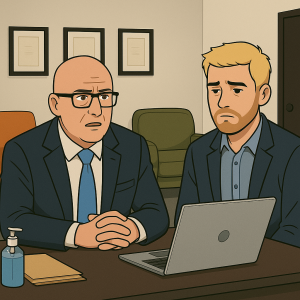1. Victim and Witness Rights
- Missouri Attorney General – Victim Services
Offers legal guidance, victim rights resources, and referrals for compensation and advocacy programs. - Missouri Department of Public Safety – Crime Victim Services Unit
Provides funding for local victim service providers and manages victim compensation for eligible expenses.
2. Free and Low-Cost Legal Aid Programs
- Legal Services of Missouri
Statewide legal aid network offering free legal help for domestic violence, stalking, defamation, and harassment-related matters. - Missouri Bar – Lawyer Search
Helps locate private or pro bono attorneys and provides links to legal aid programs by region.
3. Relevant Laws
- Stalking: Mo. Rev. Stat. § 565.225 & § 565.227
What it means: Purposely engaging in a course of conduct that causes a reasonable person to fear for their safety or suffer emotional distress. Includes digital stalking. - Harassment: Mo. Rev. Stat. § 565.090
What it means: Involves threats, coarse language, or alarming behavior intended to cause emotional distress or fear. Includes electronic harassment. - Bullying: No adult criminal statute. Addressed under Mo. Rev. Stat. § 160.775 (Education Code)
What it means: Requires school districts to adopt policies addressing bullying and cyberbullying. Schools must respond and protect students from peer-based harassment. - Defamation: Civil tort, not criminal. Based on Missouri case law and common law.
What it means: Libel (written) and slander (spoken) may lead to civil lawsuits if false statements cause harm. Missouri does not criminalize defamation.
4. Reporting and Hotlines
- Call 911 in case of immediate danger.
- File non-emergency complaints with local law enforcement or your county circuit court.
- Missouri Coalition Against Domestic and Sexual Violence (MOCADSV)
Provides shelter, legal help, and survivor support services statewide. - Statewide Domestic Violence Hotline: 1-800-392-7095
Offers 24/7 confidential support, safety planning, and referrals across Missouri.
5. Support Organizations
- Missouri Coalition Against Domestic and Sexual Violence
Connects survivors to local advocacy programs, legal services, and culturally specific support networks. - Safe Connections
Provides legal advocacy, mental health services, and crisis response in the St. Louis region.
6. Civil Remedies and Protection Orders
Victims in Missouri can petition the court for an Order of Protection in cases involving stalking, harassment, or abuse. Orders can prohibit physical proximity, digital contact, and indirect communication. Legal aid programs and victim advocates can assist with filing and court navigation.
Important Note on Jurisdiction: If the individual you are seeking a restraining order against lives in a different state, your local court may not have jurisdiction to enforce that order. In most cases, you must file for protection in the state where that individual resides or where the conduct occurred. This applies even in situations involving online harassment, defamation, or stalking. Contact legal aid services in both your state and the other person’s state for guidance.
7. Youth and School Resources
- Missouri Department of Elementary and Secondary Education – Bullying Prevention
Offers guidance for schools, reporting processes, and anti-bullying policy requirements.
8. Court Forms and Filing Help
- Missouri Courts – Adult Abuse/Order of Protection Forms
Access court-approved forms, instructions, and guidance for filing protection orders related to harassment and abuse.
9. Online Safety and Privacy Tools
- NNEDV Tech Safety Toolkit
Provides tools for digital safety, identity protection, and online harassment response for survivors.
Disclaimer: This information is provided for educational purposes only and does not constitute legal advice.




